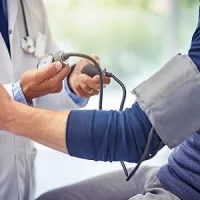Summertime is usually a good time to travel for many people, either to make that much awaited family visit or have their dream vacation in an exotic place. It is also during this time of the year when doctors are often asked this question: “Is it safe to travel with a heart condition?” And in most cases, the answer is an enthusiastic “yes.”
For patients with heart disease, the key to a safe journey is advance preparation, according to Dr. Eli Gelfand, Chief of the Outpatient Cardiology Clinic at Beth Israel Deaconess Medical Center. By carefully planning ahead and occasionally, making small modifications to travel plans, people with heart conditions can enjoy their trips without worrying about their health, he says.
Some important tips from Gelfand to help you get ready for your trip.
1. Talk with your doctor about your travel plans, especially if you have undergone a recent heart procedure, use oxygen intermittently or chronically, or been prescribed a new medication. You can ask whether it's safe for you to fly, including on long flights, and to visit high-altitude destinations. Also, are any special immunisations required for the country you'll be visiting?
2. Put together a full list of all the medications you are currently taking — prescription and over-the-counter — and the specific doses. Bring this list with you when you travel. Pack medications in a place where you can easily reach them while you are travelling. If you are flying, pack medication in carry-on luggage. Take time zone differences into account if you take your medications at a particular time of day or evening.
3. Regarding airplane travel, patients with a history of congestive heart failure, congenital heart disease or lung disease should be aware that despite cabin pressurisation, the air in the plane’s cabin is still much thinner than it is on the ground. This impacts how oxygen is carried through the blood, and means that your heart has to work harder. Talk with your doctor about this. Other tips for safe airplane travel:
• Move around. Sitting for long periods of time can slightly increase the risk of blood clot formation in the veins of the legs, arms or pelvis, especially in patients who have peripheral artery disease (PAD) or heart failure. On long-haul flights, Dr. Gelfand recommends that travellers get up and move around, at least every two hours.
• Stay hydrated. It’s particularly important to stay hydrated when you’re on the plane and when you are in a high-altitude location. Besides drinking plenty of water, avoid alcohol and caffeinated beverages to prevent dehydration.
• Prepare for metal detectors. Most people can travel safely with a pacemaker or another implantable cardiac device. Be aware that although full body scanners at the airport will not harm pacemakers or change the settings, they may set off metal detector alarms. Ask your doctor for a letter to have on hand when you go through airport security or show your medical device card to the Transportation Security Administration official. You may be asked to not go through the metal detector.
4. Although enjoying local cuisine is an important part of any trip, Dr. Gelfand recommends that patients talk with their doctors in advance to help avoid getting sick, especially in developing countries. If you are on a special diet at home, stick to your diet as much as possible during your trip. Talk with your doctor for his or her recommendations when it comes to alcohol, particularly if you have been diagnosed with an irregular heartbeat.
5. In an emergency, always seek immediate treatment at a local hospital before contacting your doctor. Dr. Gelfand also advises patients travelling abroad to look up the emergency services number for your destination country prior to leaving home, and use mPassport, a handy phone/tablet app that allows you to look up emergency numbers, local physicians and local safety alerts.
Image Credit: Pixabay
Latest Articles
heart disease, heart patients, travel
Summertime is usually a good time to travel for many people, either to make that much awaited family visit or have their dream vacation in an exotic place. It is also during this time of the year when doctors are often asked this question: “Is it safe to










